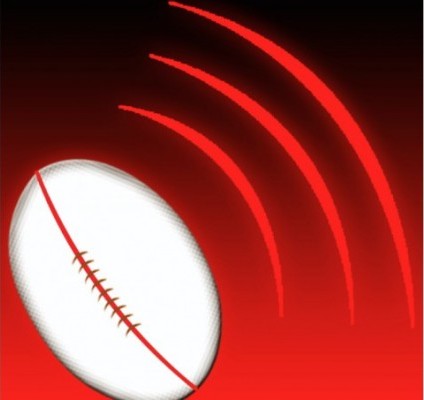ARPTC Caps 1st Year With Title
ARPTC Caps 1st Year With Title
If you didn’t know much about the American Rugby Pro Training Center (ARPTC), chances are you do now. The Little Rock-based Olympic Development Academy (ODA) won the women’s Club 7s National Championship over the weekend, and did so with a cast of relatively unknown players. Yes, there was a capped Eagle leading the way, but there were no recently released OTC athletes or long-established stars hoisting that trophy on Sunday. The lineup was, however, a group of full-time residents, and unsurprisingly that made all of the difference.
“The fact we won was less about winning a championship, because that was not the goal,” ARPTC founder and head coach Julie McCoy said. “The goal was to play good 7s, test players, and see how we’re doing as an academy. It was a test. We celebrate the win because that means we’re on the right track.”
That track was laid about a year ago. In August 2014, the ARPTC held its first high performance camp, and by February, McCoy had four residents training full-time on site. Two more signing periods saw 14 women and two men occupying the grounds by June. The women played at Atlanta, hosted Mexico and 1823, traveled to tournaments in Cancun, the Midwest, Texas, and MARFU, before debuting in front of American audiences in Des Moines, Iowa. Since the ARPTC began playing in January, it has yet to lose a 7s game.
“[The championship] reinforced that if you’re a talented player who wants to go someplace and do things, be appreciated for your talent, then the full-time environment is where you need to go – rather than putting down some change for a camp and hoping for a lottery ticket,” McCoy said. “That’s one way to do it – get ‘discovered’ – but the other way is to go out there and show that you can work hard, be disciplined, and play at that level. That’s what coaches are looking for: How do you manage that talent? What do you bring to the table and how do you manage it?”
The management aspect is tough – especially for young athletes who glean their confidence from on-field performance – and maturing the mental side of one’s game is just as important as developing the physical side.
“We don’t focus on winning and points, and that helps us manage our emotion,” McCoy said. “These people we’re working with are genuinely wonderful people. We love them like daughters and sons. And we can have that type of relationship because we’re not national team coaches. We can be a complete advocate. It’s not all roses – sometimes you’ve got to get on the children – but it is a family atmosphere.”
The athletes train under a different kind of pressure. They aren’t being evaluated for selection to an upcoming tour or test, and so training sessions can be mistake-driven, and the players can learn to deal with that emotional turmoil. Not everyone survives – players have washed out – but generally, the residents have thrived at the Center, and some of that success is rooted in transparency.
“The most important thing a head coach can do is be extremely and brutally honest,” McCoy reflected on her time as the USA Women 7s head coach. “Most [potential residents] come to me – send film or attend a camp – and want to know what I think. I put them in one of three categories: One, you have potential for the Olympic team or OTC. Two, you are a long shot for that, and I can’t be more specific because I don’t know how much work you’ve put in, or if you’ve dealt with off-field issues. I don’t know some things. But I’m willing to take a chance on you. Three, I do not see you at that level for reasons X, Y, Z, but if your goal is to be best club or college player you can be, then I’ll take you as a resident – as long as your level of play will contribute to the whole.”
That third category represents another tenet to ARPTC’s mission. If the USA wants to win Gold at the Olympics, then all levels of the game must improve.
“Our intention is not only to create Eagles who will win world championships but also help raise the level of domestic play,” McCoy said. “It’s too expensive to fly 12 people to Fiji to play. It’s not economically sane to cut our teeth on international tours to develop. You have to make people play up.”
McCoy, who made her first trip to Club 7s Nationals, was pleased to see the top 4-6 women’s clubs embracing that “play up” mentality. Teams like Seattle, San Diego, Scion, Life West, they’re helping pave players’ way into the OTC. Pure clubs comprised the majority of the field, teams that are developing the game locally and not trying to recruit.
“That’s OK, but they’re struggling [at nationals],” McCoy said of the true club teams. “The Surfers were the hardest for us. They were athletic across the board. We not only had to beat them seven-on-seven; we had to beat them one-on-one. We were stronger [physically] – our strength and conditioning is different than what you see in San Diego. But their skill and understanding of the game – they are well coached. Hats off to Richie Walker helping that area on the women’s side.”
ARPTC won that showdown 12-7 and beat a team with many well known players who have or are currently affiliated with the OTC – Phaidra Knight, Deven Owsiany, Jessica Javelet, Danielle Miano, Hannah Lockwood, and former ARPTC resident Lauren Rhode, among several others. That match put some talent into perspective, and ARPTC athletes Jess Wooden, Ashley Perry, Abby Vestal, Hunter Griendling, and Bria Bohanon were all recommended to USA 7s coach Ric Suggitt.
But McCoy clarified that the ARPTC is not a training ground to simply get athletes into the OTC; there’s a bigger mission at large.
“We have a quote at the academy: Let’s not go to the OTC; let’s get through the OTC,” McCoy said. “We try to beat New Zealand, England, Australia at Little Rock. We don’t try to beat the girls who are at the OTC now. We think we can beat them, but then what? It’s not a place to go and sit on a roster.
“We short-change ourselves as Americans, and it’s bull***t. We just don’t know the game as well, and just because we didn’t grow up with a rugby ball in our hand doesn’t mean we can’t be a power on the world stage. Look at what Mike Friday has done with the boys. He changed the culture and now they’re dominating. They’re not getting different Xs and Os. They’re the same boys, they’re just getting other stuff.”
The ARPTC is McCoy's contribution, and there's a lot more in the works - from hosting the Northeast ODA to facilitating the professionalization of the sport. A successful first year is motivation to keep pushing forward.
"The [player] numbers aligned with expectations; our positive outcomes exceeded them," McCoy reflected on Year One. "For our first year, we were highly successful. I told you a year ago, that if this didn’t work, I would just stop and say that I tried. But the evidence is proving that it’s a sound model. As long as young people understand the importance of hard work over lottery tickets, and we can help them figure out what they want, then I don’t see it going away."
Related Articles:











